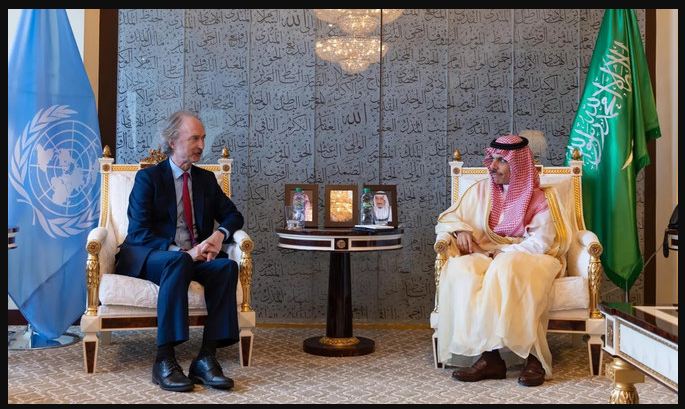Pakistan Army Chief Fuels Hindu-Muslim Divide, Reinforces Obsessive and Failed Ideology
Islamabad — In a speech that has stirred widespread criticism and rekindled old wounds, Pakistan’s Chief of Army Staff General Asim Munir on Wednesday revived the deeply divisive Two-Nation Theory, urging Pakistanis to indoctrinate future generations with the belief that Muslims and Hindus are fundamentally incompatible.
Speaking at the Convention for Overseas Pakistanis in Islamabad—with Prime Minister Shahbaz Sharif in attendance—General Munir declared that Pakistan was created on the basis of “every possible difference” between the two religious communities.
“Our religion is different. Our customs are different. Our traditions are different. Our thoughts are different. Our ambitions are different,” Munir said, invoking the ideological foundation laid by Muhammad Ali Jinnah in the 1940s. “You must tell this to your children so that they never forget the story of Pakistan.”
But this “story” is not just about differences—it’s a carefully preserved narrative used by Pakistan’s military establishment to maintain a stranglehold on power, distract the public from economic failures, and perpetuate enmity with India. It is a story that has long come at the cost of regional peace, minority rights, and Pakistan’s own internal harmony.
Munir’s speech, delivered with a religious tone befitting his reputation as a “Hafiz-e-Quran”, did little to hide the Army’s obsession with defining Pakistan solely through what it is not—India. His remarks reflected the establishment’s enduring dependence on the ideological rhetoric of 1947, a time when the wounds of Partition were still fresh, and the world had not yet seen the consequences of such rigid identity politics.
A Doctrine Past Its Expiry Date
The Two-Nation Theory has not aged well. If anything, it collapsed under its own contradictions in 1971, when Bangladesh—originally East Pakistan—broke away in a bloody war that exposed the myth of religious unity. Despite sharing the same religion, East Pakistanis rejected the economic and political dominance of West Pakistan, shattering the illusion that Islam alone could form a cohesive national identity.
And yet, here we are in 2025, with the head of Pakistan’s most powerful institution lecturing overseas citizens to hold tight to that expired ideology. What purpose does this serve, other than reinforcing xenophobia, hostility, and a warped sense of nationalism rooted in exclusion and antagonism?
Critics across the globe have not held back. Indian strategic expert Aditya Raj Kaul accused Munir of “exposing his hate for Hindus and India,” while prominent Pakistani journalist Taha Siddiqui called the remarks an attempt to “brainwash youth” with dangerous falsehoods.
Assam Chief Minister Himanta Biswa Sarma called the speech a reminder of the stark ideological divide between the two nations, urging India to stop harboring illusions about reconciliation with its western neighbor.
The Real Jugular: The Army’s Grip on Pakistan
Munir’s speech also touched on Pakistan’s usual talking points—Kashmir and Balochistan. His threat-laced comments about Baloch rebels further illustrated how the military sees dissent as terrorism, rather than a call for justice. Kashmir, once again called Pakistan’s “jugular vein,” is less a heartfelt issue and more a strategic tool—one that sustains the military’s budget, influence, and unchallenged supremacy in Pakistan’s political life.
As Delhi-based journalist Rishi Suri rightly pointed out, Kashmir has become more of a “business model” for Pakistan’s generals than a national cause. Strategic analyst Sonam Mahajan summed it up bluntly, “Kashmir is Pakistan’s jugular vein, which explains why Pakistan has been in the ICU for 78 years, sustained only by IMF oxygen and jihadist morphine.”
An Unyielding Establishment in a Changing World
The tragedy of General Munir’s speech is that it wasn’t surprising. It’s the same tired script the Pakistan Army has relied on for decades—where religion is used to unify, enemies are used to justify military supremacy, and history is rewritten to prevent progress.
Pakistan’s establishment had a choice. It could have embraced a narrative of peace, coexistence, and modern statehood. Instead, it chose to double down on identity politics rooted in fear and historical grievances.
By clinging to an outdated and divisive ideology, General Asim Munir and the Pakistan military aren’t just looking backward—they’re actively obstructing the possibility of a forward-looking, inclusive, and stable Pakistan.
And perhaps that is by design. Because in a truly democratic and progressive Pakistan, the Army might no longer be the most powerful voice in the room.


